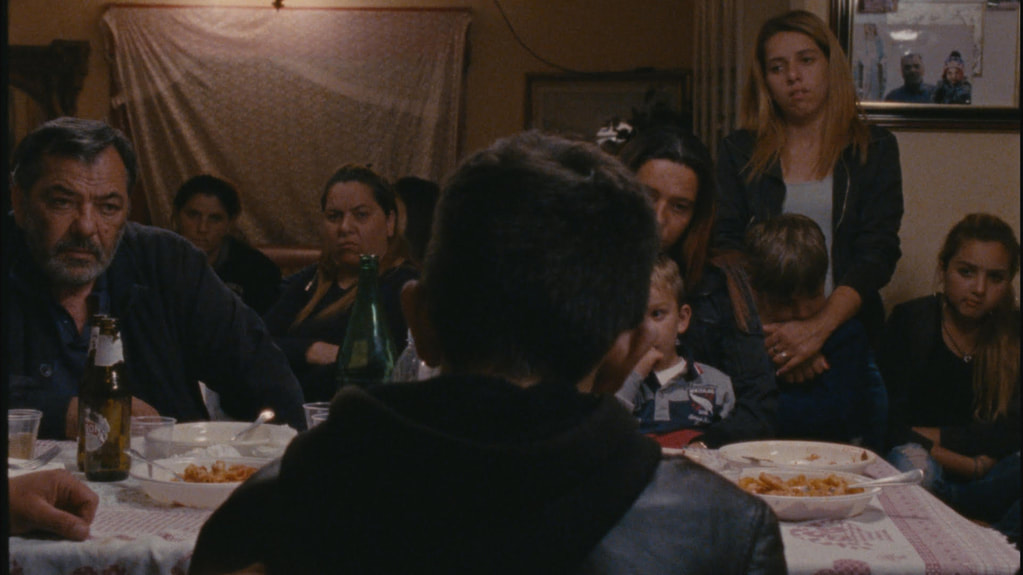|
While a tad by-the-numbers in its formalism, Jonas Carpignano's A Ciambra is a harrowing coming-of-age story which is assertive in its general disgust for tribalism, hierarchy, and cyclical nature of humanity in a dog-eat-dog world. Its main protagonist, Pio, is a character desperate to grow up fast. He drinks, smokes, and attempts to bed the woman of his small Romani community in Calabra on a near nightly basis, idolizing and romanticizing the lifestyle of his elder brother. Pio is crafty, being one of the few people who can traverse the various factions of the community- the Italians, Africans, and Romanis, but he is desperate for the same responsibilities as his elder brother which involve petty theft and grand theft auto, whatever necessary to survive in this desolate region where the Italians rule the land. When his brother is arrested, Pio attempts to be "the man of the family', which leads to his youthful naivety and innocence being completely shattered under the weight of the dog-eat-dog nature of his world. While Jonas Carpignano's A Ciambra certainly falls into the coming-of-age canon, being a film first and foremost about the loss of innocence, these assertions have been seen a thousand times before. Couple this with the film's overall visual design, one which is visceral and chaotic to-a-fault, being far too claustrophobic and frantic early on to the point of distraction, A Ciambra was a film that had me concerned early on. By its conclusion, A Ciambra won me over, touching on lots of interesting assertions related to tribalism, societal repetition, and the general coercive nature of such collectivist trappings, yet it relies heavily on its strong characterization to keep the viewer engaged early on. Carpignano's characterization of young Pio is well-observed, a balanced one which manages to exhibit Pio's assertive nature while still slyly reminding the viewer of his youthful naivety. He is a character who externally projects toughness and responsibility, occupying spaces usually only occupied by adults, yet we are reminded of youthful nature throughout this narrative as well, whether it be due to his childish fear of trains or his shyness when it comes to various social interactions, in particularly when he watches the soccer match with the African migrants. A Ciambra's establishes this community as one with an oppressive and well-established hierarchy, where the local Italians effectively rule over both the fellow Romani, and the African refugees. Through Pio's personal journey, we see the cyclical effect such hierarchy has on common decency, with Pio eventually betraying his friend, an African migrant, who has shown more empathy and compassion for him than his own family, falling victim to the tribalism of his community. Pio, in his youthful naivety, doesn't have the same tribalism or collectivist identity as the adults in these various factions, and as narrative progresses, you can slowly see this being extracted from him. His ascent into adulthood runs parallel to his collectivist, tribalistic identity, one that leads towards a somber conclusion in which we see Pio effectively loose not only his innocence, but a part of his personal identity.
By the finale of this film, Pio is a character whom has seen his innocence shattered, and while he questions the way things are, he inevitably falls inline and excepts his reality, he has now become a man among his Romani tribe but at what cost to his empathetic soul?
0 Comments
Leave a Reply. |
AuthorLove of all things cinema brought me here. Archives
June 2023
|

 RSS Feed
RSS Feed
